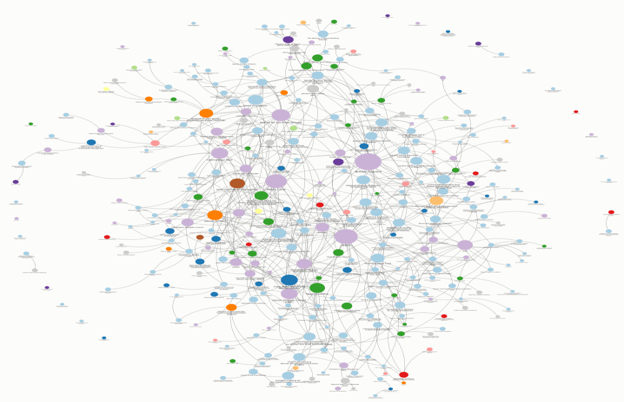Violent extremism has plagued northeastern Nigeria for approximately a decade. Boko Haram, one of the largest militant groups in Africa, has continually threatened the stability and security of Nigerian citizens. The Boko Haram insurgency has displaced around 2.1 million people since 2011, and terror in the form of human rights violations, gender-based violence, and forced recruitments contributes to the growth of that number. These issues highlight the importance of USAID’s countering violent extremism (CVE) objectives in Nigeria, which include the prevention of atrocities, the stabilization of conflict-related areas, and the improvement of early warning and response systems.
To support these objectives, in 2021, ORB began supporting Creative Associates with research, analysis, and learning under the Nigeria Northeast ConNEction Activity. The purpose of this activity is to understand how ongoing efforts of conflict mitigation have impacted Nigeria’s fight against violent extremism, as well as its farmer-herder conflict (a disagreement over land between Muslim Fulani herders and Christian non-Fulani farmers). This activity is funded by USAID/Nigeria under the Programming Effectively Against Conflict and Extremism (PEACE) IQC. ORB carries out several functions, including 1) quarterly conflict analyses 2) community vulnerability assessments 3) Social Network Analyses, and 4) bi-annual learning sessions.
ORB conducts a quarterly conflict analysis in Borno, Adamawa, and Yobe States. To do this, ORB uses USAID’s Conflict Analysis Framework, in conjunction with key informant interviews (KIIs) and media analysis. This analysis scrutinizes the effectiveness of local efforts to mitigate conflicts between farmer and herder communities, and also examines violent extremist organization (VEO) conflict patterns and trajectories. ORB then provides state-specific recommendations to improve conflict mitigation strategies.
In addition to quarterly analysis, ORB conducts community vulnerability assessments to violent extremism organizations (VEO) through bi-annual surveys. These assessments help understand the impact of violent extremism on community members and identify potential solutions. The results of these surveys are disseminated by ORB through workshops with civil society organizations (CSOs), women and youth groups, state and local governments, USAID, and implementing partners (IPs).

Representation of ORB’s Social Network Analysis, which examines the collaboration of different community actors on conflict mitigation
ORB conducts Social Network Analysis (SNA) on a baseline, midline, and endline frequency using a mixed-methods questionnaire, which collects data from KIIs.ORB interviewed various organizations working on early warning and CVE, as well collaboration on social cohesion, via phone and face-to-face interviews. The SNA helps USAID understand how well CSOs and citizen actors work together with government partners to thwart VEO threats. The SNA evaluates this collaboration in different areas of focus, including peacebuilding and social cohesion dialogue, early response/early warning, and countering violent extremism.
Lastly, ORB supports program learning by co-designing and organizing bi-annual learning sessions with ConNEction staff and USAID. These learning sessions involved discussions aimed at improving upon program design using lessons learned. ORB supports the project’s objectives by building on knowledge gained during the data collection process. Through this series of analyses and learning sessions, ORB continues to contribute to USAID’s crucial work in Nigeria.
